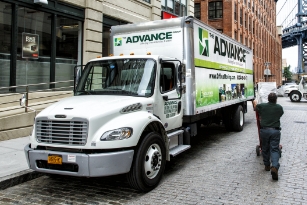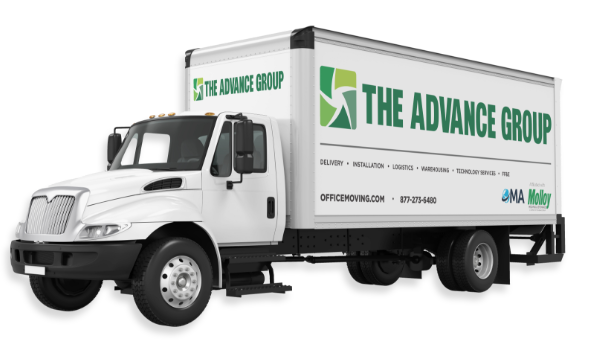Preserving Employee Morale During Relocations

Commercial relocations create significant stress and uncertainty for employees, who must adapt to new environments, potentially longer commutes, and disrupted routines while maintaining productivity and professionalism. The way organizations handle employee concerns and maintain morale during relocations often determines whether the move strengthens or weakens team cohesion and overall organizational performance.
Employee morale during office relocations requires proactive management that addresses both practical concerns and emotional responses to change. Teams that feel supported and valued throughout the relocation process emerge stronger and more committed to their goals. Fostering a sense of inclusion and open communication can lead to enhanced productivity, improved retention, and a strong, positive relationship with organizational leadership.
Addressing Employee Concerns Before They Become Problems
The most effective approach to maintaining employee morale begins with understanding and addressing concerns before they escalate into larger problems. Common employee concerns include changes to the commute, parking availability, safety in the new neighborhood, lunch options, and potential impacts on work-life balance.
Conduct surveys or focus groups to identify specific concerns within your workforce, recognizing that different employees may have vastly different priorities and challenges. Parents might worry about childcare arrangements, while public transportation users need information about transit access.
Create resources that address practical questions comprehensively. Develop guides that include information about the new location, parking arrangements, public transportation options, nearby restaurants and services, and any changes to company policies or procedures resulting from the relocation.
Transparent Communication Builds Trust and Reduces Anxiety
Uncertainty breeds anxiety, and anxious employees cannot perform at their best. Establish regular communication schedules that provide updates on relocation progress, timeline changes, and decisions that affect employee experience. Even when there’s nothing new to report, regular check-ins demonstrate that leadership remains focused on employee welfare.
Share the reasoning behind relocation decisions, helping employees understand how the move benefits both the organization and their career prospects. When employees understand that relocations support business growth, improved facilities, or expanded opportunities, they’re more likely to view temporary inconveniences as worthwhile investments in their future.
Be honest about challenges and setbacks rather than trying to maintain unrealistic optimism. Employees who discover problems through rumors or personal observation lose trust in leadership communications. Acknowledge difficulties while emphasizing the steps being taken to address them and the expected resolution timelines.
Involving Employees in the Relocation Process
Employees who feel like participants rather than passive recipients of organizational changes maintain higher morale and greater commitment to successful outcomes. Create opportunities for employee input on decisions that affect their daily work experience, such as office layout preferences, standard area designs, and workspace configurations.
Establish employee committees or liaison roles that facilitate communication between management and staff throughout the relocation process. These representatives can gather feedback, communicate concerns, and help develop solutions that address employee needs while meeting organizational requirements.
Consider offering volunteer opportunities for employees who want to contribute more actively to the relocation process. Some staff members might enjoy helping with packing, organizing, or setting up new spaces, transforming potential stress into productive engagement.
Recognizing and Rewarding Flexibility and Patience
Relocations demand employee flexibility and patience. Acknowledging these contributions fosters positive attitudes. Implement recognition programs that highlight contributions, such as public recognition for productive teams, individual acknowledgments for helpful employees, or celebrations of relocation milestones. Tangible rewards, like additional PTO, catered meals, or team-building activities, demonstrate leadership values and employee sacrifice.
Managing Commute and Lifestyle Changes
Changes in commute time and route can significantly impact employee quality of life and job satisfaction. Some employees may face longer commutes, different transportation options, or altered schedules that affect family time and personal routines. Address these concerns proactively rather than hoping employees will adapt without support.
Explore flexible work arrangements that help employees manage commute challenges, such as adjusted start times, compressed work weeks, or increased remote work opportunities. These accommodations help offset commute difficulties while demonstrating the organization’s commitment to employee well-being.
Provide resources to help employees adapt to new commute options, including public transportation guides, carpooling coordination, or partnerships with ride-sharing services. Some organizations offer temporary commute subsidies to help employees adjust to new transportation costs.
Creating Excitement About New Opportunities
Successfully managing employee morale during a relocation involves highlighting the benefits and opportunities the move provides. Emphasize improvements directly benefiting employees, such as upgraded facilities, better technology, enhanced amenities, or expanded career opportunities. Organizing preview events allows employees to visualize these improvements and feel more comfortable with upcoming changes, addressing concerns while building anticipation.
Sharing success stories from other organizations that have completed similar relocations can further demonstrate positive outcomes for both companies and employees. These examples help employees envision successful adaptation and the long-term benefits that result from temporary disruptions.
Post-Move Team Building and Culture Rebuilding
The first few months after relocation are critical for rebuilding team dynamics and organizational culture in new environments. Plan team-building activities that help employees connect and feel comfortable in new spaces.
Create opportunities for employees to personalize their new workspaces and contribute to the development of new traditions and routines. Encouraging ownership of the new environment helps employees feel settled and committed to making the relocation successful.
Monitor employee satisfaction and morale closely during the post-move period, addressing issues quickly before they become entrenched problems. Regular check-ins, surveys, and informal conversations can identify areas where additional support or adjustments are needed.
Your Team’s Success Is Our Mission
Maintaining employee morale during commercial relocations requires thoughtful planning, consistent communication, and genuine commitment to employee well-being. Organizations that prioritize team spirit throughout the relocation process build stronger, more resilient teams that emerge from the experience with enhanced loyalty and improved performance.
We can help with your office relocation. Contact us today to get started.








